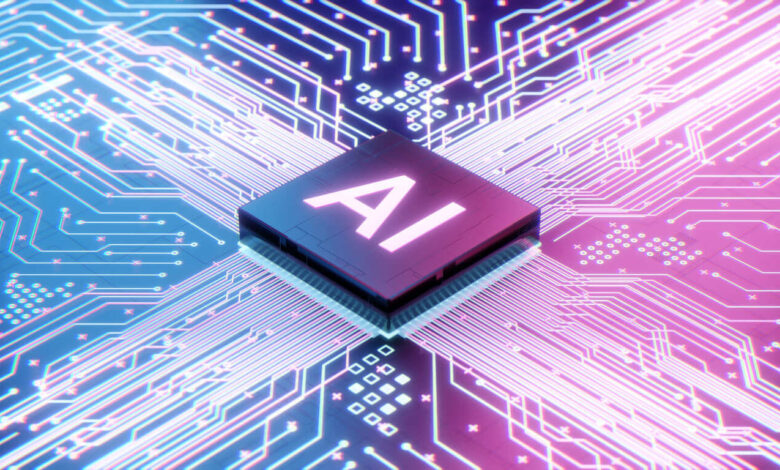The Role of Artificial Intelligence in Modern Healthcare: Opportunities and Challenges

Key Takeaways:
- Artificial intelligence reshapes healthcare by improving diagnostics, personalizing treatments, and enhancing patient care.
- While AI offers considerable benefits, it also raises ethical and privacy concerns that must be addressed with comprehensive policies and frameworks.
- Fostering synergistic collaborations and investments is critical to realizing the full potential of AI in healthcare.
Table of Contents:
- Understanding AI in the Medical Field
- AI’s Impact on Medical Diagnostics
- Enhancing Patient Care with AI
- AI in Drug Discovery and Development
- The Ethics and Privacy Concerns of AI in Healthcare
- Bridging the Gap: AI and the Healthcare Workforce
- Advancements and Innovations: AI’s Ongoing Evolution
- Patient Outcomes and AI: A Closer Look
- Funding and Investment in AI Healthcare Initiatives
- Collaborations and Partnerships in AI Healthcare
The healthcare sector is experiencing a significant digital transformation, propelled by the advent of artificial intelligence (AI). The integration of artificial intelligence in healthcare is not just a fleeting trend but a sustained movement towards more innovative, more efficient, and patient-centric care protocols. This pivot to AI-driven systems promises enhanced diagnostics, treatment personalization, and healthcare management, positioning AI at the forefront of medical innovation. As we navigate this shift, it is crucial to understand the multifaceted impact of AI and address the ethical, privacy, and practical implications accompanying its adoption.
Understanding AI in the Medical Field
Artificial intelligence, with its capacity to interpret vast amounts of data and learn from outcomes, influences nearly every facet of modern healthcare. AI’s role extends beyond diagnostic tools into predictive analytics, administrative efficiency, and personalized patient communication. Data-driven algorithms support clinical decisions, improve patient flow, and optimize resource allocation, making the healthcare environment more responsive and effective. AI’s most significant promise lies in its potential to unlock the complexities of human biology, allowing for advancements in treatment modalities that cater to the individual rather than the population at large.
AI’s Impact on Medical Diagnostics
AI has notably enhanced diagnostic procedures, mainly through the application of machine learning in interpreting medical imaging. Computer vision technologies now assist radiologists in detecting subtle changes in imaging scans that might indicate early stages of diseases such as cancer or neurological disorders. Another breakthrough comes from pathology, where AI algorithms assist in identifying cell abnormalities with remarkable accuracy. However, the dependency on AI tools necessitates rigorous validation to ensure that diagnoses remain reliable and are complemented by human clinical expertise.
Enhancing Patient Care with AI
At the core of healthcare’s digital revolution is the commitment to patient-oriented care, where AI is crucial. Sophisticated algorithms now power applications that support remote monitoring, enabling clinicians to track patient vitals and adjust treatments in real time. Moreover, AI is at the forefront of telemedicine, facilitating virtual consultations and providing critical healthcare access in underserved regions. Another emerging dimension is using AI-driven chatbots and applications that enhance patient engagement by offering timely health information and interactive guidance while fostering a proactive approach to personal health management.
AI in Drug Discovery and Development
The pharmaceutical industry has embraced AI for its potential to streamline the arduous journey of drug development. By leveraging AI’s pattern recognition capabilities, researchers can predict how different compounds interact with biological targets, thus identifying potential drugs much faster than traditional methods. This acceleration in drug discovery correlates directly with the potential to bring life-saving treatments to market more rapidly, enhancing the global response to diseases. Further, AI applications extend into clinical trial design, optimizing participant selection and monitoring, thereby improving the quality and efficiency of trials.
The Ethics and Privacy Concerns of AI in Healthcare
As AI systems delve deeper into personal health records to enhance care delivery, they also bring privacy concerns to the forefront. Aggregating sensitive data raises issues around consent, data ownership, and potential misuse. Strong safeguards and transparent policies are requisite to preserve patient trust and confidentiality. Ethical questions also emerge, such as how much we should rely on AI’s recommendations and the consequences of its errors. Addressing these challenges is essential for the responsible adoption of AI, ensuring that it serves humanity’s best interests within a healthcare context.
Bridging the Gap: AI and the Healthcare Workforce
Integrating AI into healthcare practice does not eliminate the need for skilled professionals; it simply redefines their roles. Clinicians equipped with AI tools can focus on the qualitative aspects of care — empathic interaction, complex clinical reasoning, and nuanced decision-making. Integrating AI into healthcare also stresses the importance of education for medical practitioners, ensuring their readiness to work alongside advanced technologies. This symbiotic relationship suggests a future where AI augments the capabilities of the healthcare workforce rather than replacing it.
Read also How to Organize and Store Chess Pieces: Tips for Maximum Protection
Advancements and Innovations: AI’s Ongoing Evolution
Innovation in AI is relentless; each year, it brings sophisticated algorithms and applications to the healthcare setting. From interpreting genetic information to aid in personalized therapy plans to leveraging big data for public health initiatives, AI is branding itself as a versatile and potent tool in medicine’s arsenal.
Patient Outcomes and AI: A Closer Look
Metric analysis offers concrete evidence of AI’s beneficial influence on patient outcomes. Implementing AI in clinical settings has decreased diagnostic error rates, reduced hospital readmission rates, and streamlined patient care pathways. These improvements not only enhance the quality of life for patients but also reduce the long-term costs associated with chronic disease management. Nevertheless, vigilance is necessary to monitor AI’s unintended consequences, as technological breakthroughs must align with patient safety and quality assurance protocols.
Funding and Investment in AI Healthcare Initiatives
Investment in AI technology within healthcare signifies a conviction in its transformative power. Government grants, venture capital, and strategic partnerships are driving the momentum of AI research and development. These investments enable early-stage startups and established corporations to explore novel approaches to healthcare delivery. Tracking investment trends can offer a glimpse into the future of healthcare, where AI could become as ubiquitous as electronic health records.
Collaborations and Partnerships in AI Healthcare
The advancement of AI in healthcare is not solely the domain of technologists or medical professionals. It requires a multidisciplinary effort involving academia, industry, and regulatory bodies. Collaborative initiatives can harness diverse expertise to surmount obstacles, whether they’re technical challenges, regulatory hurdles, or the integration of AI into clinical workflows. Interdisciplinary efforts also help ensure that AI solutions are designed with real-world applicability in mind, fostering a healthcare ecosystem that readily adapts to technological innovation while prioritizing patient welfare.




